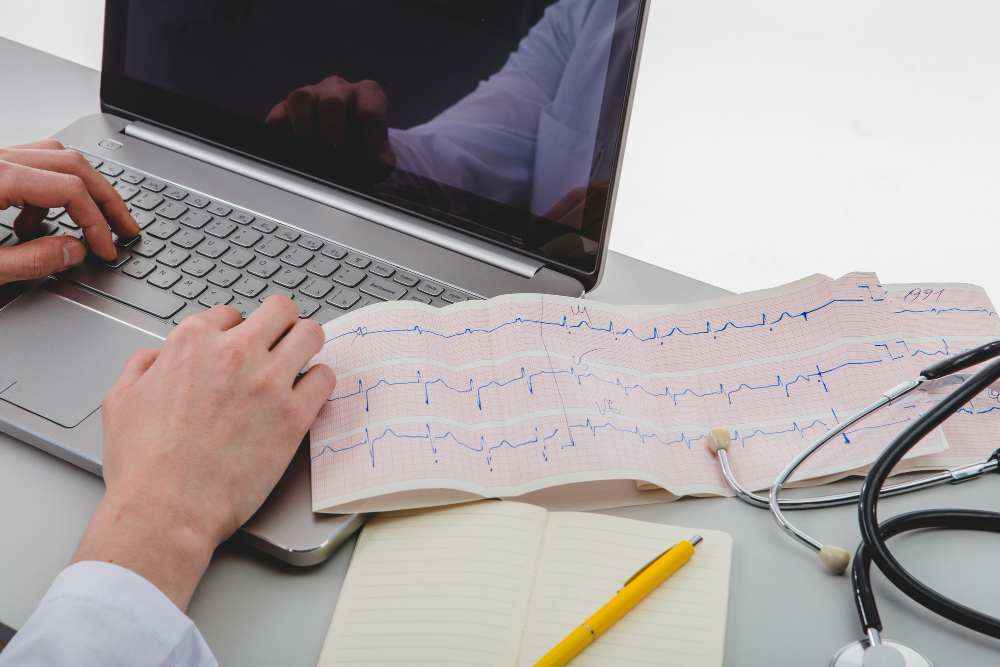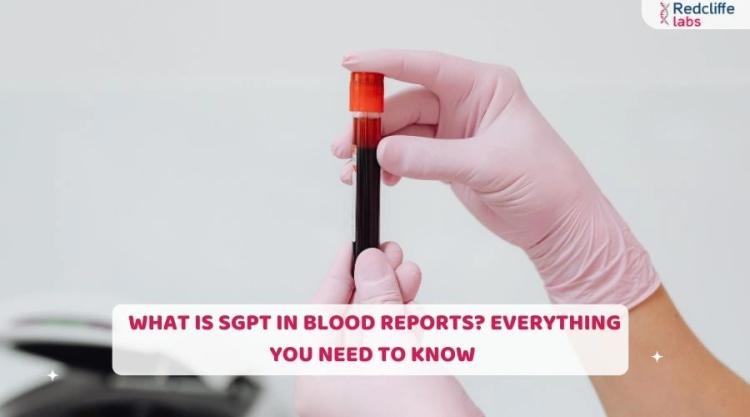ECG Test: Price, Purpose, Procedure, Types, & Result

Medically Reviewed By
Dr Sohini Sengupta
Written By Kirti Saxena
on Apr 22, 2024
Last Edit Made By Kirti Saxena
on Jul 19, 2025

Did you know? Cardiovascular diseases cause 27% of deaths in India.
According to statistics, only 5 percent of people above 60 years old take the ECG test, even though people in this age group are at high risk of heart disease.
Your heart is a tireless engine powering your every move and deserves the best care. It is a complex network of muscles that contracts rhythmically to pump blood throughout the body. But what manages this rhythm? Tiny electrical impulses! Heart-related disease and abnormal heart rhythms can affect those signals.
Is your heart beating too fast or slow, or you’ve been having chest pain?
To identify the cause of the problem, your doctor might recommend the Electrocardiogram or ECG Test.
But what is an ECG Test?
An ECG Test captures these electrical signals as they travel through your heart muscle.
Here in this blog, let's explore everything about ECG types, purpose, procedure, benefits, and limitations so that you can be ready before your next visit to the doctor.
The other name of the ECG Test-
- ECG Test
- Holter monitor
- Ambulatory electrocardiography
- Continuous electrocardiograms
- Transtelphonic event monitors
What is the purpose of the ECG Test?
The ECG test helps to diagnose the
- How fast or slow is your heart beating
- Whether the rhythm of your heartbeat is steady or irregular
- the conditions involving the heart's electrical system
- The strength and timing of the electrical signals
- It helps to measure the size and position of your heart's chambers.
- It helps to diagnose heart problems like heart attack, inflammation in the heart, Cardiac Arrest, and abnormal heart rhythm.
- It detects cardiomyopathy, a condition where the heart muscle weakens and enlarges, affecting pumping efficiency.
When does your doctor recommend an ECG Test?
Your doctor might recommend the ECG test if you are experiencing the following symptoms-
- Chest pain
- Fatigue
- Feeling of your heart racing, fluttering, thumping, or palpitations
- Shortness of breath
- Dizziness, lightheadedness
- Fainting
- Sweating
- Nausea, indigestion and vomiting
Types of ECG Tests
There are three major types of ECG Tests, including-
- Resting ECG
This is one of the most common types of ECG. Your doctor will ask you to lie down at rest to perform this. You will not be allowed to move during the test, as the electrical impulses from other muscles might interfere with the test. During the test, the doctor will attach electrodes to your chest, arms, and legs to record your heart's electrical activity.
- Exercise Stress test
This type of ECG evaluates how your heart responds to physical exertion. It involves performing an ECG while walking on a treadmill or riding a stationary bike, gradually increasing the incline or resistance. The goal is to see if exercise triggers abnormal heart rhythms or changes in your ECG that wouldn't be seen during a resting ECG.
- Holter Monitor
A Holter monitor requires you to wear a portable ECG device for 24 to 48 hours. You can continue your daily activities while wearing this device, which records your heart's electrical activity during this period. This can help identify intermittent heart problems that might not appear during a short resting ECG.
- Event Monitor
An event monitor is similar to a Holter monitor in that you wear the device for a shorter period (a few days to a week) and activate it only when you experience symptoms like heart palpitations or chest pain. You press a button on the device to record your heart rhythm during these episodes, which can help your doctor determine the cause of your symptoms.
- Signal-averaged ECG (SAECG)
A SAECG is a specialized type of ECG used to detect a specific type of arrhythmia called Wolff-Parkinson-White (WPW) syndrome. This test involves multiple ECG recordings to amplify faint electrical signals that might be missed on a standard ECG.
Preparation for ECG Test
An ECG is a simple test requiring no special preparation before the test.
- You can eat and drink as usual before the ECG test.
- Inform your doctor before the test if you take any medications or supplements.
- Consult your doctor if you have any questions or concerns about the test.
- Tell your provider if you have a pacemaker.
10 Symptoms Indicating the Need for an ECG Test
EKG or ECG checks the functioning of your heart. It can help your doctor detect and diagnose any underlying cardiovascular disease early. Ten symptoms you need an ECG test:
- Rapid pulse
- Difficulty breathing
- Weakness or chronic fatigue
- Less mobility rate
- Dizziness or lightheadedness
- Confusion or short-term memory loss
- Chest pain
- Previous heart attack
- Fluttering, skipping, or pounding heartbeat
- Blocked or narrowed heart arteries
Why Do You Need The ECG Test?
Symptoms are the initial step showing the need for an ECG or EKG test. However, there are many reasons you should take the ECG test. These are:
- To look at the functioning of an implanted pacemaker.
- To detect reasons for irregular heartbeats.
- To monitor overall heart health.
- To detect the reason for chest pain.
- To find the efficiency of certain medicines
Who Performs the ECG Test?
The EKG machines carry out the ECG test. Redcliffe Labs offers the ECG test using the latest technology. Their EKG test helps diagnose heart diseases and heart health. You can book the ECG test at home from the website or mobile app. They assure 100% report correctness.
What happens during the ECG Test?
An ECG test is a simple, painless, invasive procedure. Here is what to experts during the ECG test-
- Your doctor will ask to remove clothing or jewelry as these items might interfere with the electrodes.
- Afterward, the healthcare professional gently places sticky patches or electrodes on your chest, arms, and legs.
- Next, you have to lie on a table for a few minutes while the ECG machine records your heart's electrical signals. You cannot move during this time to ensure accurate results.
- After the recording, the electrodes will be removed, and the healthcare professional will analyze the ECG recordings. The doctor will discuss the findings with you and explain their benefits to your heart health.
Feel free to ask questions if you have any concerns about the procedure or the results.
What do the ECG Test results mean?
The normal heart beats at a rate of 60 to 100 bpm. The values higher or lower than this range may indicate some issues. Here is what the abnormal ECG test results mean-
- An abnormal EKG signifies that one or more aspects of the heart walls are larger than another. This means the heart is making more effort than normal to pump blood.
- Electrolyte imbalance may also cause abnormal ECG. Electrolytes are electricity-conducting particles in the body that keep the heart muscle beating in rhythm.
- Abnormal EKGs can be caused by heart attacks or ischemia. During a heart attack, blood flow is affected, and heart tissue is unable to carry oxygen to the heart. This tissue will also not conduct electricity, which can cause abnormal EKGs.
- The heart beats in a steady rhythm; if the EKG is abnormal, it indicates that the heart is beating out of rhythm or sequence.
- Taking certain medications can impact a heart’s rate and rhythm and cause abnormal EKG.
Normal ECG Ranges for Men and Women
|
Parameter |
Men (Normal Range) |
Women (Normal Range) |
Units |
|
Heart Rate |
49 to 100 BPM |
55 to 108 BPM |
Beats Per Minute (BPM) |
|
P Wave Length |
81 to 130 ms |
84 to 130 ms |
Milliseconds (ms) |
|
PR Interval |
119 to 210 ms |
120 to 202 ms |
Milliseconds (ms) |
|
QRS Duration |
74 to 110 ms |
78 to 88 ms |
Milliseconds (ms) |
|
QT Interval |
324 to 441 ms |
314 to 438 ms |
Milliseconds (ms) |
|
P-wave axis |
-29 to 85 degrees |
-18 to 81 degrees |
Degrees |
|
QRS-wave axis |
-13 to 85 degrees |
-180 and 82 degrees |
Degrees |
|
T-wave axis |
0 to 720 degrees |
-8 to 730 degrees |
Degrees |
|
Sokolow-Lyon index |
2.13 to 6.21 mV |
1.60 to 4.87 mV |
Millivolts (mV) |
|
Cornell index |
0.17 to 6.24 mV |
0.14 mV to 4.35 mV |
Millivolts (mV) |
How To Read an ECG Test Report?
An ECG test's normal range is 60-100 beats per minute (bpm). Your doctor can better read and guide you toward test reports. An EKG test reads signals and tracks the results of contraction and relaxation with each heartbeat.
The ECG or EKG test reports can be read by looking at how much electrical activity, how strong it is, and how much time passes between two waves or peaks, representing electrical impulses.
- Your upper heat chamber or atria creates the P wave or first wave.
- Your lower heart chamber (ventricles) creates the QRS complex, the next complex wave.
- The last wave is the T wave, which shows your heart resting or recovering after beating.
Are There Any Risk Factors Affecting The ECG Test Results?
There are not many risk factors linked. However, the factors listed below may hinder the results.
- Obesity
- Anatomical considerations
- Certain medicines
- Electrolyte imbalances
- Smoking before the EKG test
- Exercise before the test
- Movement during the ECG test
Are ECG and EKG Different?
ECG and EKG both have the same meaning, i.e., electrocardiogram. EKG is popular in German, where people use ‘k’ instead of ‘c.’
Some people connect echocardiograms and electrocardiograms. They are different. An echocardiogram is an ultrasound that creates images of the heartbeat.
What Are The Warning Signs of a Heart Attack?
Our body gives signs of a heart attack. If you see any of the following signs, take the ECG test.
- Pain or discomfort in your arms, shoulders, neck, jaw, or back.
- Nausea or vomiting
- Digestive issues
- Sweating or a cold sweat
- Difficulty breathing or shortness of breath
- Dizziness or fainting
- Anxiety
- Chest pain
- Chronic stress
What are the risks of the ECG Test?
ECG is a very safe test with no risks or complications. The sensors called electrodes do not make electricity.
Some people might get rashes and itchiness from the adhesive tapes, but this is normal, resolves its own, and does not require any treatment.
Who should take the ECG Test?
There isn't a one-size-fits-all answer to who "must" take an ECG test. Doctors recommend them based on various factors, including:
- People with symptoms like chest pain, palpitations, shortness of breath, lightheadedness or dizziness, and fatigue.
- People who have health conditions like high blood pressure, diabetes, and high cholesterol.
- People with a family history of heart-related disease
- For pre-surgery evaluation
- Athletes or people who are involved in strenuous sports activities
What are the Benefits of the ECG Test?
The ECG test is beneficial because it provides information about the heart's electrical activity, which helps to diagnose various serious issues.
- ECG testing is also essential in diagnosing coronary artery disease (CAD).
- For people with certain heart diseases, an ECG test can help monitor their progress accurately.
- The ECG test results have improved diagnostic accuracy, providing reliable test results that help doctors make detailed treatment plans.
- ECG test is painless and non-invasive like other diagnostic procedures.
- The ECG procedure takes only a few minutes, making it time-efficient to assess your heart health.
- The ECG allows doctors to identify heart conditions like arrhythmias, coronary artery disease, or heart attack in their early stages.
- Assess how well medications or therapies are controlling heart rhythm or function.
- ECGs are a relatively inexpensive way to assess heart health compared to other diagnostic tests. This makes it an accessible option for many patients.
- ECGs are generally safe with minimal risks.
Limitations of ECG Test
The ECG test, while valuable, does have some limitations to consider. Here are some of the drawbacks of ECG are-
- The ECG primarily focuses on electrical activity. Diagnosing structural abnormalities or other heart problems that don't affect electrical signals is not helpful.
- It cannot detect heart valve problems, congenital heart defects, heart muscle damage, intermittent arrhythmias, and stress-induced heart problems.
- Certain factors, such as lung disease, age-related disease, and obesity, may make the interpretation more difficult. Further testing is required to get a complete picture of cardiac health in such cases.
What is the cost of an ECG Test?
The cost of an ECG test may range between INR 200 and 500. The price may vary depending on the location and hospitals and clinics. If you are looking for an ECG test, search on your browser for "ECG test near me," and you will find some of the best search results. Choose the best option based on convenience, location, time, and cost. You can also book ECG test at home with Redcliffe Labs at Rs 799 only.
Take care of your Health with an ECG Test.
Your heart deserves the best care. An electrocardiogram (ECG) test helps to diagnose heart problems like arrhythmias, coronary artery disease, heart attack, or enlarged heart. Consult your doctor to determine if an ECG is right for you. Don't hesitate to seek professional advice if you have any questions or concerns about your heart health. Early detection and prevention can help to maintain a healthy heart.
So, take charge of your heart health! Schedule an appointment with a nearby ECG lab to know your heart condition. Remember, a healthy heart is a happy heart!



